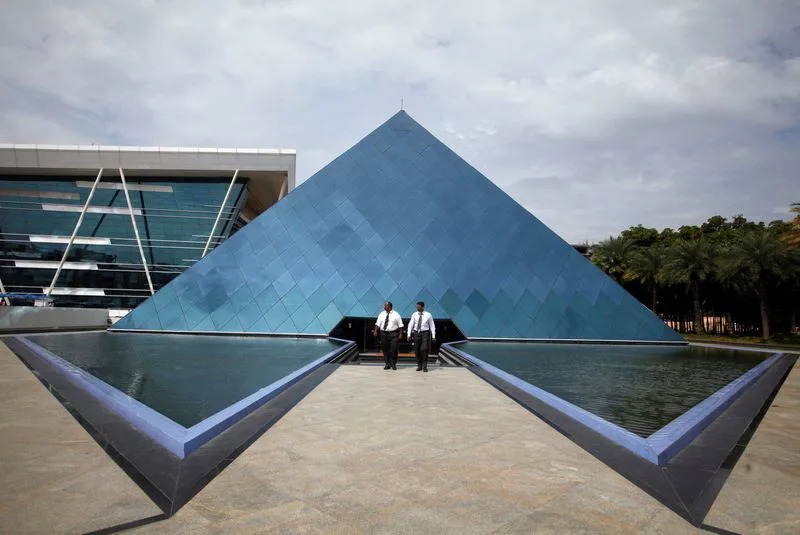Sai Ishwarbharath B
Tue, December 19, 2023

Employees walk in front of a pyramid-shaped building at the Infosys campus in the Electronic City area of Bangalore
BENGALURU - India's information technology firms are accepting tougher contract terms to win large deals from clients as they compete for fewer orders in an uncertain global economy, industry insiders and analysts say.
The $245-billion sector, which gained immensely from the pandemic-induced boom in digital services, has struggled in recent quarters as clients slashed spending on discretionary projects amid inflationary pressures and recession fears.
That is forcing companies including Tata Consultancy Services, Infosys and HCLTech to accept contract conditions such as guaranteeing minimum cost savings, billing the client only if certain goals are achieved and reviewing cost overruns.
"Whenever economic challenges appear and demand recedes, it becomes a buyer's market. The clients try to push more clauses including capping the pricing and asking for outcome-based deals," said former Infosys CFO V Balakrishnan.
"It was witnessed during 2008 when the global financial crisis happened, and in 2001 during the dot-com crash," he said.
Tata Consultancy Services and Infosys did not respond to Reuters' requests seeking comment. HCLTech declined to comment on specific deal terms.
More than 80% of more than 1,600 IT and business process management deals tracked in 2023 had some form of committed-savings clause, versus around 65% in 2019, data from IT research firm Everest Group showed.
Such cost-saving clauses are either baked into the pricing, or companies risk a cut in fees if the savings are not achieved, Everest Group CEO Peter Bendor-Samuel said.
Contracts with such clauses that were signed this year include HCLTech's $2.1 billion deal with Verizon and a $454 million deal between Infosys and Danske Bank, a person familiar with the deal terms said.
Under the Danske Bank deal, which runs for five years, Infosys will digitise the lender's operations and take over its delivery centre in India, while the Verizon deal, which runs for six years, will see HCLTech become the U.S. firm's primary tech partner for network deployments, according to exchange filings.
TOUGH TIMES
The tougher contracts are likely to add pressure on an industry that is already struggling. India's second-biggest software-services exporter by sales Infosys has already predicted its slowest annual sales expansion in at least a decade for the current financial year ending March 2024.
The big IT firms classify contracts worth $100 million or above as large deals and those above $500 million as mega deals, which are typically struck when demand is low.
TCS, Infosys and HCLTech have won seven mega deals since May, company disclosures show, while Wipro did not win any mega deals. Its Chief Growth Officer Stephanie Trautman, who was leading the large deals team, resigned earlier this month.
The tougher terms tied to the large IT deals are an attempt by clients to hedge against the global economic uncertainty, deal advisors said.
"Clients are increasingly seeking predictable business outcomes and assurances to protect their interests in large deals that often span five years or more," said Avinash Baliga, partner at deal advisor Avasant.
The inclusion of committed-cost-savings clauses in deal agreements has climbed to 50-60% presently versus 20% in the last decade, Baliga added.
The clauses also reflect a rise in client maturity.
"Customers have become much more aware of the possibilities and scenarios that could play out during a deal tenure," said Ashutosh Sharma, vice-president and research director at Forrester India. "Now, clients are asking IT players too to share risks and rewards."
(Reporting by Sai Ishwarbharath B; Editing by Dhanya Skariachan and Miral Fahmy)
No comments:
Post a Comment